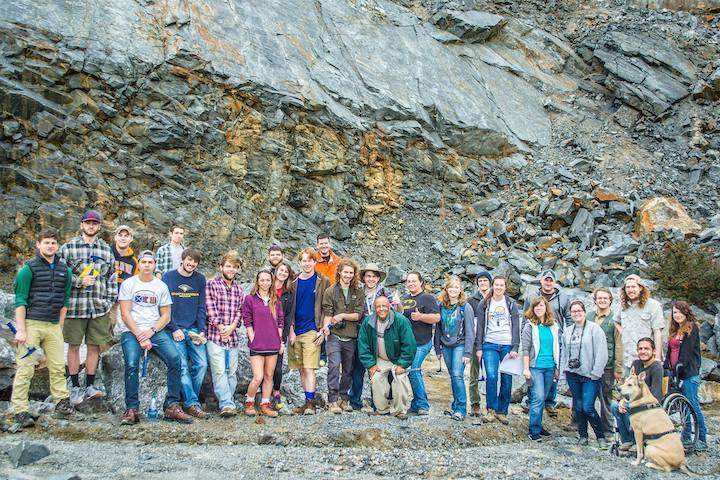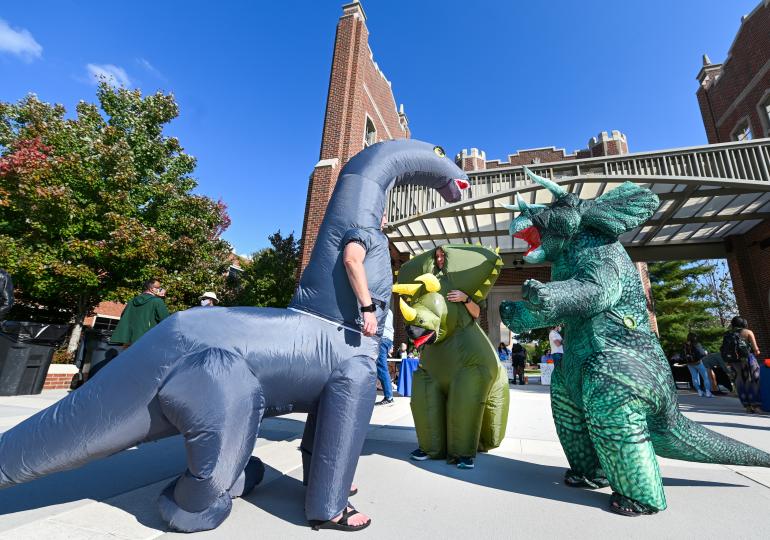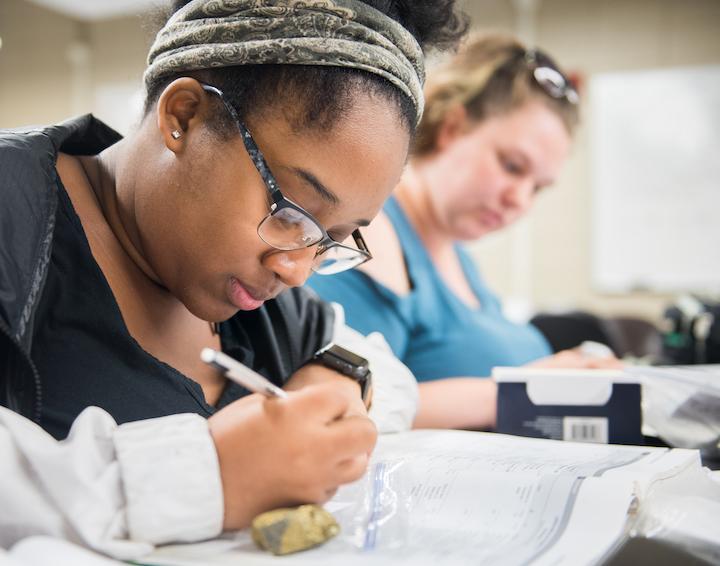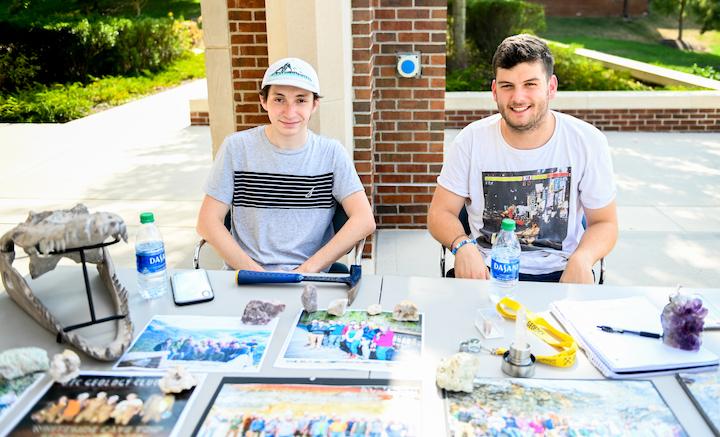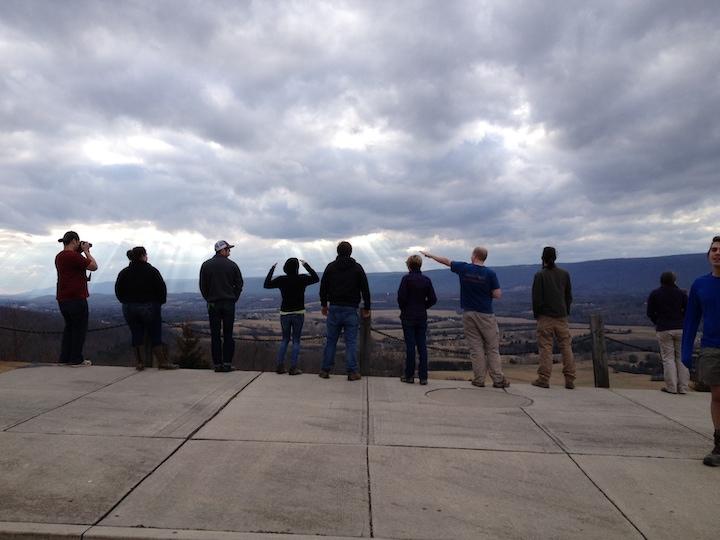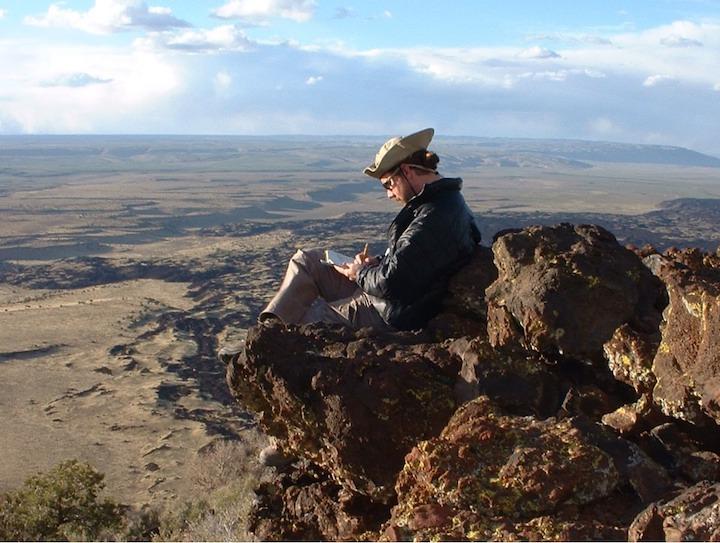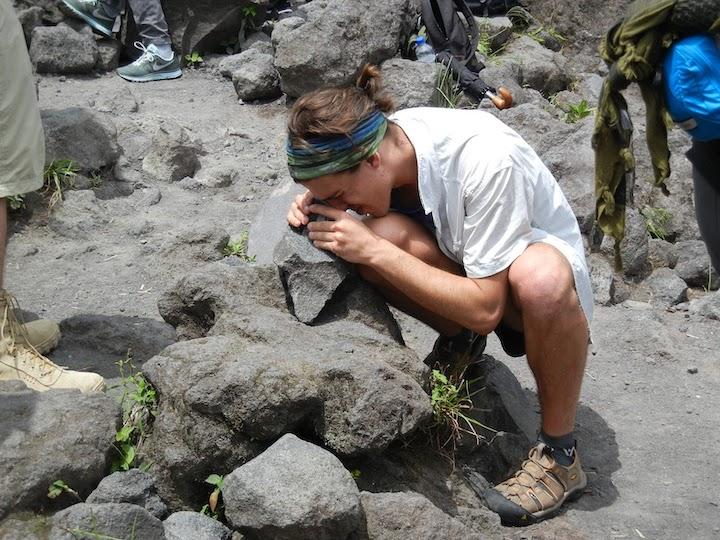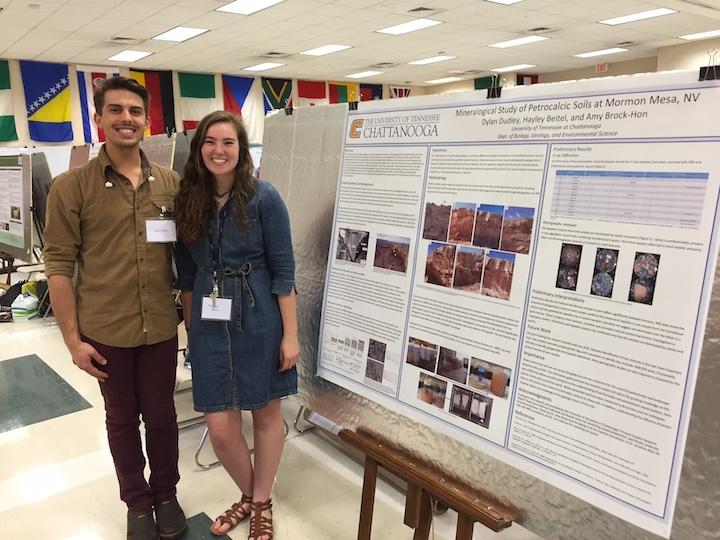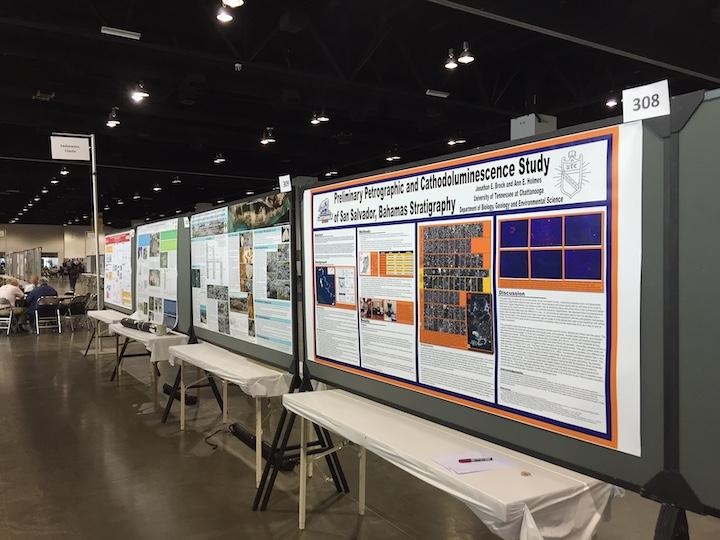About the Geology Program
Geology, “the study of the Earth” benefits all that make Earth their home.
Within the past century, exploration of the Moon, Mars, asteroids, and other bodies in the Solar System have also become important for future human habitation and resource extraction. Geologists play an important role in our understanding of Earth and these extraterrestrial objects.
For over 80 years, the Geology program at UTC has continued a tradition of excellence in undergraduate education. Beyond the basic content knowledge related to Geology and Earth processes, our students develop critical thinking skills and learn the techniques of problem-solving for application to critical issues faced by Earth’s inhabitants today and in the future.
Solutions to critical Earth issues occur with a knowledge of system linkage between the lithosphere, hydrosphere, biosphere, and atmosphere and how humans interact with these ever-evolving systems. At UTC, we prepare students for a career and/or graduate studies in the Geosciences, with an understanding that they will obtain the core skills needed to make them successful outside of the field as well. It is our intent that graduates of our program use their gained content knowledge and skills to problem-solve issues to meet the needs of their communities
Some critical issues that Geoscientists are working to address today include:
Climate change and its effects that can only be understood in the context of the whole Earth and its history following a bottom-up approach.
Seismic (earthquake) hazards such as those faced as part of the East Tennessee Seismic Zone. A full understanding of the mechanisms and probabilities of seismic events are important to regional inhabitants, and nuclear power and dam safety.
Landslides, sinkholes, flooding, river erosion, and drought and their impact assessments and mitigation strategy.
Urban growth and its environmental impacts such as urban heat island impact (UHI) and the effects on the quality and quantity of the water resources (surface and ground water).
Energy resource challenges and the Energy Transition include the identification and extraction of coal, oil, and natural gas. Environmental impacts of these and renewable energy sites such as solar and wind farms are better understood from a geological perspective when evaluating environmental impacts. Carbon storage solutions are also critical for the future of long-term habitability of the planet.
The introduction, migration, and mitigation of environmental contaminants on the surface and subsurface can be understood through the surficial and subsurface geology, fracture linkage, soil and aquifer materials, and mineral interactions. Hydrological modeling is also critical in understanding flow of contaminants. For more information about what you can do with a degree in Geology visit the Bureau of Labor and Statistics and the American Geoscience Institute
Degree Programs
We offer a minor degree and a B.S. in geology with six concentrations. Click on the buttons below to explore the details of these programs and to view our current course offerings.
What sets us apart from other Geology programs?
Location, Location, Location
The regional geology is spectacular and ideal for field trips covering many Geology topics and environmental issues. Chattanooga is located within the fold-and-thrust belt of the southern Appalachians. Carbonate and siliciclastic sedimentary rocks of the Valley and Ridge Province are the foundation of the UTC campus, with sandstone and conglomerate exposures atop the Cumberland Plateau about 15 km west of campus. Metamorphic rocks of the Blue Ridge and the Piedmont provinces and igneous rocks east of the mid-province of the Blue Ridge are within half an hour to two hour trip from the main campus. Excellent exposures of folds and faults (brittle and ductile) are likewise located within 100 km of the campus. Karst topography is also present in valleys and along the flanks of the plateau. The Tennessee River and related hydrological settings provide ample examples of contaminant issues both upstream and downstream. Chattanooga itself is an urban classroom where students can examine how anthropogenic activities can contribute to changes in the natural environment.
Field and Experience-based Education
Our program takes advantage of the surrounding world-class geological setting to explore and learn. Most of our core geology coursework includes at least one field trip. Field trips range from afternoon trips to 10-day international excursions. Each spring we offer a course titled Geology Field Experience that spends the semester learning about the Geology of a location, then traveling to that destination. The class runs to the desert southwest of the United States in odd years, and an international location during even years. For over 30 years, the international destination has included Costa Rica. More recently, the course has traveled to Spain and Scotland.
Most of our upper-level courses also have an experience or ‘lab’ component. Students have access to preparation and analytical equipment for course projects and for individual and capstone research projects using facilities housed in both Grote and Holt Halls. A list of this equipment is found under the Facilities section of our program page.
Every student who graduates completes a research project.
The B.S. Geology degree requires all majors to complete a research project as part of a 2-course capstone experience. The first semester of their senior year, students complete GEOL 4800 (Research Design) where they design their own research project. The following semester, students collect data, report on preliminary results and conclusions of their research in GEOL 4900 (Senior Research Experience). Students also have the opportunity to work with faculty on their research and present results at UTC Research Dialogs and regional and national meetings of the Geological Society of America. For more information about past and current student research, visit the student research section.
If you are interested in joining our program as a student. Please visit the Prospective Students tab for more information and/or contact Dr. Amy Brock-Hon at [email protected].
If you are interested in joining our program as a student. Please visit the Prospective Students tab for more information and/or contact Dr. Amy Brock-Hon at [email protected].
